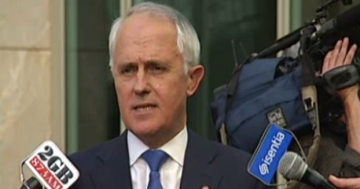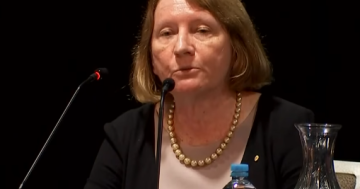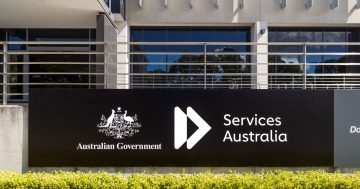
There was a reluctance to deliver bad news to Kathryn Campbell, then secretary of the Department of Human Services. Photo: Supplied.
Advice outlining the unlawfulness of the Robodebt scheme sat with government lawyers for months because they were too scared to pass it up the line to departmental secretary Kathryn Campbell.
The royal commission into the ill-fated scheme heard evidence that Ms Campbell, then secretary of the Department of Human Services (and later the Department of Social Services), was so feared that lawyers wouldn’t tell her things she didn’t want to hear.
The department’s former principal legal officer, Anna Fredericks, gave evidence to the inquiry that she was uncomfortable in 2018 with the department’s culture under Ms Campbell’s leadership.
A reticence to deliver unwanted news pervaded the department.
“Colloquially, there was a commentary no one wanted to give her bad news,” Ms Fredericks said.
She said there was “definite pressure” from above about what the legal team should advise the secretary.
Ms Fredericks said a “siloed type of culture” reigned over the department and that the legal team was regularly avoided.
“You were responsible for what you were responsible for; you stayed within those bounds,” she said.
Former assistant director of payment integrity at the DSS, Kristin Lumley, also gave evidence last week, saying her attempt to advise of the illegality of the scheme was blocked by a departmental boss – but she said she couldn’t remember who that was.
“It wouldn’t be good news to share,” she said of the legal advice.
“It would damage the department’s reputation, the minister’s reputation.”
Ms Lumley said she saw draft legal advice from law firm Clayton Utz that the scheme was unlawful, but that advice was not acted upon.
She said the department had advice that there were whole-of-government implications that could see the issue taken to the Federal Court.
Asked if she felt there was inaction from her superiors to act on the legal advice, Ms Lumley replied: “Yes, I did.”
Royal Commissioner Catherine Holmes suggested there had been a “certain passivity” from the department’s legal section while it was meant to be providing advice on the Robodebt scheme.
Branch manager of payment integrity, Allyson Essex, said she had raised the legal advice with the department’s deputy secretary, Nathan Williamson, who agreed that the scheme was clearly illegal.
She also said the department did not act in relation to appeals over the scheme’s automatic debt notices.
According to evidence before the commission, Ms Campbell wasn’t happy with how many appeals were being dismissed by the Administrative Appeals Tribunal.
She raised the requirement for handling appeals from the EL2 level to Band 2 of the Senior Executive Service.
The Robodebt scheme was a method of automated debt assessment and recovery for Centrelink payment compliance that was put in place in 2016.
It erroneously calculated overpayments by data-matching Centrelink records with average income data from the Australian Taxation Office.
It was the cause of widespread condemnation and the cause of significant mental health harm for many debt recipients.
It was scrapped in 2020, with then-prime minister Scott Morrison promising that wrongly issued debt notices would be repaid.
Federal Court Justice Bernard Murphy condemned the scheme as illegal in 2021 and approved a $1.8 billion debt repayment settlement.
In August 2022, Prime Minister Anthony Albanese established the Royal Commission into the Robodebt Scheme, which must report to the government by 18 April this year.
Hearings continue.


















